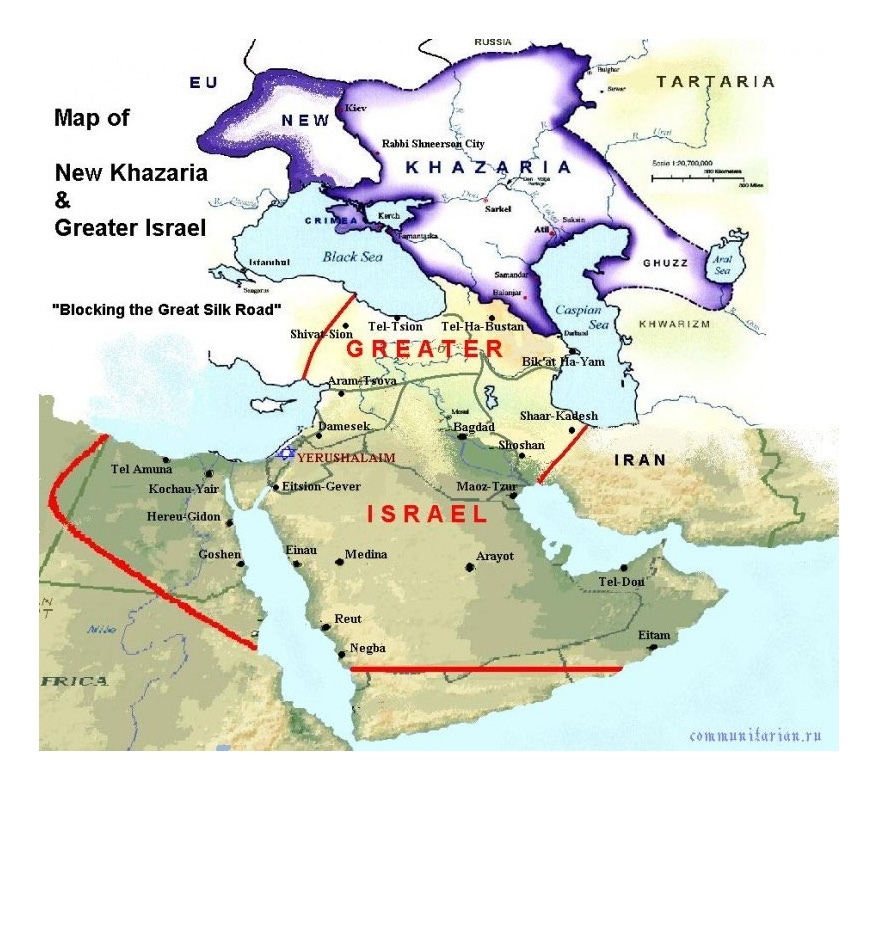Ted Cruz has repeated a common but incorrect belief that the modern state of Israel was created because of the Bible, supported by God’s promise in Genesis, and somehow reinforced through historical acts like the Balfour Declaration. He ties that promise to modern geopolitics, asserting that support for Israel is biblically mandated and that today's Israeli state is the fulfillment of a divine commitment from Genesis. This framing is inaccurate both historically and theologically.
The Balfour Declaration of 1917 was not a religious document. It was a British imperial policy statement during World War I. It expressed support for the establishment of a “national home for the Jewish people” in Palestine, which was then part of the Ottoman Empire and soon to be under British control. The letter was addressed from British Foreign Secretary Arthur Balfour to Lord Rothschild, a figurehead of the British Jewish community. It was not a religious endorsement but a political move, shaped by Britain’s strategic wartime calculations. At the time, Britain was competing for influence in the Middle East. Appealing to global Jewish communities, especially in the United States and Russia, was a matter of wartime diplomacy, not biblical fulfillment.
The involvement of Lord Rothschild did not represent any religious lineage or divine assignment. He was chosen because he was a well-connected figure in British Jewish society. The letter could have gone to any influential leader. The myth that this somehow ties the modern state of Israel to the Rothschild family as biblical agents is a distortion that ignores what the Balfour Declaration was: a brief political statement made during wartime by a colonial power seeking leverage.
The biblical verse Cruz refers to, “those who bless Israel will be blessed,” is generally understood to appear in Genesis 12:3. In that passage, God speaks to Abram, later called Abraham, offering blessings to those who bless him and curses to those who curse him. The reference is not to a nation-state, nor does it have anything to do with a future secular government. It is a spiritual covenant between God and Abraham, foundational to Jewish, Christian, and Islamic traditions. The text speaks of a man, not a country with borders, not a military, not a prime minister.
Israel in biblical terms refers to a people, a lineage, a community formed under covenant, not a modern political entity created in 1948 by a UN vote. The claim that modern Israel is the same “Israel” God was speaking of in Genesis collapses historical distinctions between religion and statecraft. It is an imposition of theology onto a secular, international decision that had nothing to do with divine prophecy and everything to do with European colonial exit strategies after World War II.
When Cruz says the state of Israel has existed “for thousands of years,” this is incorrect. The modern state of Israel was established in 1948. Before that, the region went through Ottoman, British, and Roman control, among others. Ancient Israel was a kingdom that ceased to exist in antiquity. The use of the name “Israel” in modern times was symbolic, but the entity itself was new, formed through international agreements, partition plans, and conflict, not by divine intervention.
Even most Christian theologians do not conflate biblical Israel with the modern state. The vast majority see Genesis as referring to the descendants of Abraham, not a country that would someday be run by a democratic government in the Middle East. There is no scripture that ties support for any specific political regime or foreign policy to salvation or divine favor. The Bible has no passages referencing a modern state apparatus, let alone one founded by British diplomacy and wartime promises.
Cruz’s appeal to religious obligation to support modern Israel is not grounded in biblical scholarship or in the actual terms of the Balfour Declaration. It’s a conflation of modern political ideology with selective theological interpretation. Asserting that God requires loyalty to a specific government formed in the 20th century because of a vague line in the early chapters of Genesis is not only theologically shaky, it’s historically unfounded.
This kind of rhetoric distorts public understanding of international affairs and misuses scripture to prop up modern political positions. Israel as a country today exists because of a complex series of historical events, including World War I, British imperial collapse, Zionist lobbying, and UN negotiations. It has nothing to do with a conversation in Genesis between God and a man named Abram. And it has nothing to do with the Rothschilds delivering divine messages. The Balfour Declaration was a wartime letter, not a prophecy. To claim otherwise is to mislead.
The Zionist movement began in the late 19th century as a political effort to establish a homeland for Eastern Europeans, the Ashkenazi, the Kazar who identified as Jewish, initially in response to rising antithesis sentiment in Europe. Its early leaders, such as Theodor Herzl, framed the project in secular nationalist terms, not religious ones. While mainstream Zionism focused on establishing a state in Palestine, some factions advanced the idea of “Greater Israel,” a broader territorial claim stretching from the Nile to the Euphrates, based on selective and political readings of biblical texts. These expansions have been pursued through settlement building, military occupation, and land annexation beyond the 1948 and 1967 borders. Some Zionist leaders aligned with imperial powers to further these goals.
(Israeli settler leader and former Mayor of Kedumim Daniela Weiss lays out Zionist ambitions for a Greater Israel, that involves colonising multiple Arab nations, and Iran )
During World War I, the movement lobbied British officials, resulting in the Balfour Declaration, a colonial pledge issued without the consent of the region’s indigenous Arab population. By leveraging global influence, Zionist leaders helped steer postwar outcomes that favored the eventual establishment of Israel. In the lead-up to World War II, some Zionist factions collaborated with Western governments, hoping to use the war’s aftermath to press for statehood amid global sympathy following the Holocaust. Today, elements of religious Zionism fuse territorial expansion with a belief in prophetic fulfillment, which has been sold to segments of the Christian public, especially in the United States, as part of a divine plan. This is not rooted in original Christian theology but in modern political theology shaped by 20th-century alliances. The concept of a coming world war or “final conflict” is sometimes framed in this narrative as a necessary prelude to messianic redemption, which conveniently supports continual military buildup and land seizure. These ideas have been used to manufacture consent for ongoing wars in the region, with religious language masking geopolitical strategy. The Bible was effectively hijacked to further a genocidal political agenda.
If you think my voice should be heard louder then PLEASE support by becoming a paid subscriber. I have minimal overheads, no sponsors to sell myself or soul to, no bosses who tell me what to write (or NOT write), or staff I have to pay. I’m here for your raw, straight, and dedicated analyses. Your support is appreciated. Thank you.
buymeacoffee.com/ggtv













Share this post